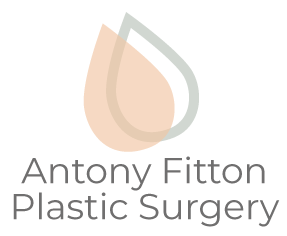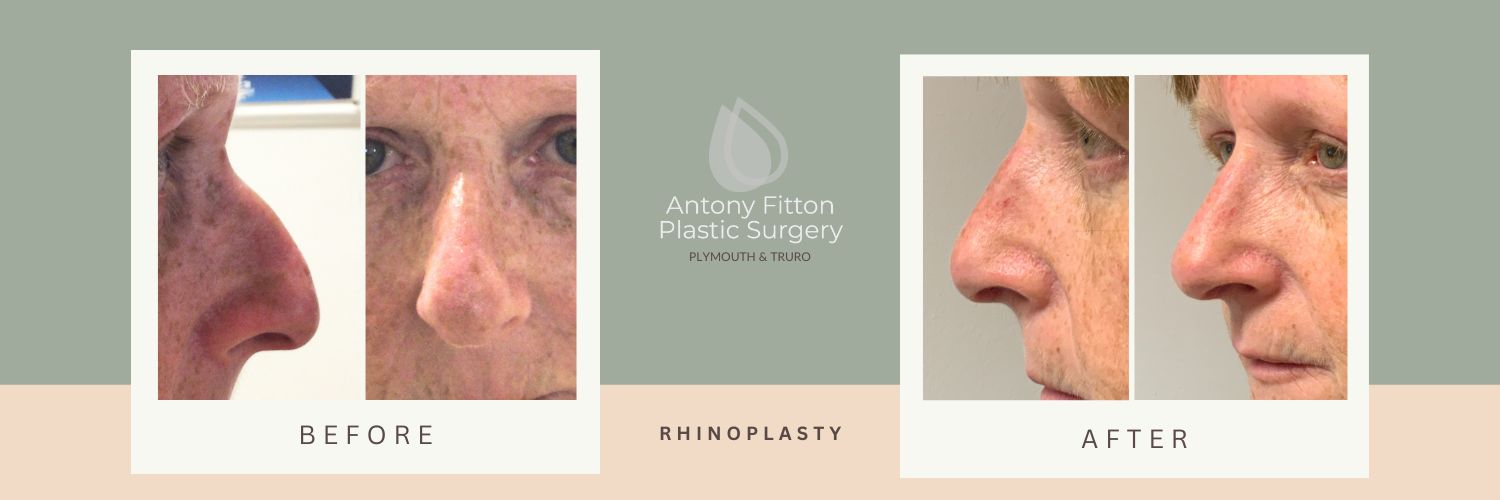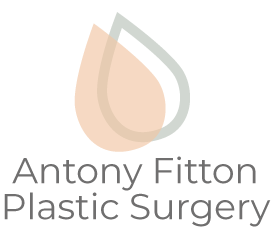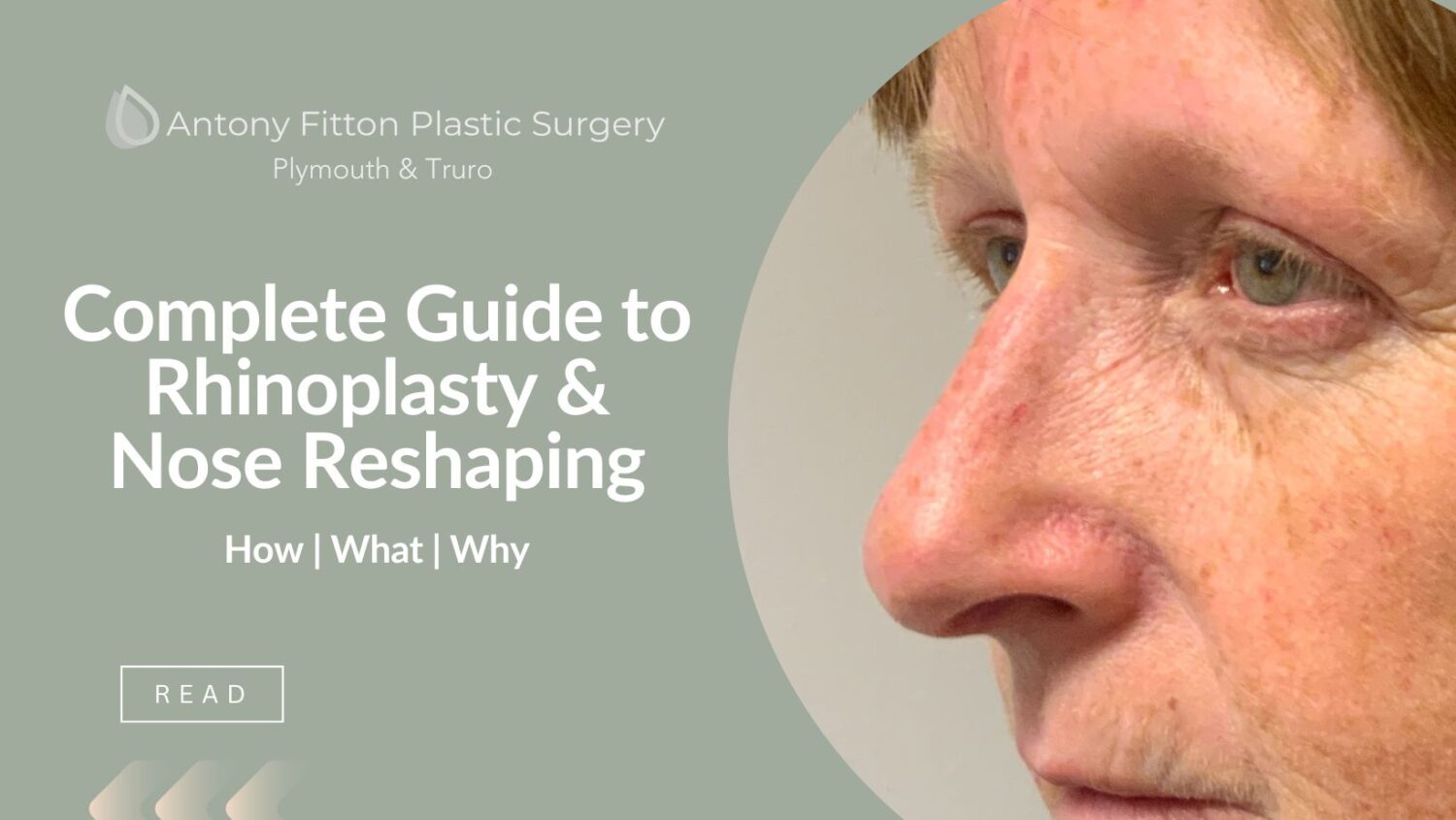
Complete Guide to Rhinoplasty & Nose Reshaping
In recent years, thousands of Brits from all walks of life have chosen to enhance their appearance and improve their confidence and self-image with a little bit of plastic surgery.
We hope to provide you with an in-depth look at rhinoplasty & nose reshaping from how to find a qualified plastic surgeon, to what to expect during the recovery period after surgery.
It can be argued that your nose is the most defining characteristic of your face. If you feel the size or shape of your nose is out of balance with the rest of your facial features, you may be self-conscious about it. If you have been uncomfortable with the size or shape of your nose for a long time, you may be considering rhinoplasty or nose reshaping.
Surgery to reshape the nose has ranked among the most popular facial plastic surgery procedures in the South West today.
What Is Nose Reshaping?
Nose reshaping, or rhinoplasty, is a surgical procedure that redefines the contours of your nose. Rhinoplasty, commonly referred to as a “nose job,” can be performed for purely cosmetic reasons, to create a nose that is more harmonious with the rest of your face or it can also be performed to improve a person’s breathing.
When making refinements to your nose, Mr Fitton will consider bones, cartilage, skin, membranes, hair follicles, glands, muscles, ligaments, blood vessels, and nerves. He can make improvements such as softening a hump, straightening a crooked nose, or reducing the size of the tip.
Mr Fitton will fine-tune specific features you don’t like about your nose while maintaining its uniqueness and character. Ideally, following surgery, your nose should look natural and be more balanced with the rest of your face.
Breathe more easily
Mr Fitton will use various surgical techniques to improve the function of your nose in addition to enhancing its appearance.
Functional improvements are intended to allow you to breathe more easily. The most common improvement made involves correcting a crooked or deviated septum.
Limitations to rhinoplasty
There are limitations to the issues rhinoplasty can correct. The amount of correction that can be achieved with your nose depends on certain characteristics and traits, such as your skin texture and thickness, and the underlying support system of bones as well as the cartilage in your nose. Mr Fitton will be able to advise you on what can be realistically achieved during your consultation.
If you feel self-conscious about your nose for any reason, you may be a candidate for nose reshaping.
Should I have Rhinoplasty surgery?
If you feel self-conscious about your nose for any reason, you may be a candidate for nose reshaping. if you’ve broken your nose, or if you don’t like the way it’s changed due to ageing, you may see improvements from nose reshaping. If you suffer from breathing problems, Mr Fitton may be able to correct these. To determine if you’re a good candidate for nose surgery, Mr Fitton will evaluate several things, including your expectations, your age, your health, your mental well-being, and your attitude.
Common complaints of the nose:
Issues of most concern to patients are:
- Mis-shaped nose
- Nasal deviation
- Nasal tip too big or drops at the end of the nose
- Nasal obstruction
What to expect from your Rhinoplasty consultation
Mr Fitton will discuss the following topics with you:
- Your medical history
- What you would like to change about your nose
- Why you would like to change your nose
- Results you can reasonably expect
- Rhinoplasty techniques and incisions
- Length of procedure
- Type of anaesthesia to be used
- Pre- and postoperative instructions
- Side effects, risks, and complications
- Length of time before you will see results
- Follow-up visits
- Costs and financing options
We recommend taking a notebook with you so you can jot down notes during your consultation. If you think you’d feel more comfortable taking a spouse or a friend to your consultation, arrange to have them accompany you. They can also take the notes so you are not distracted.
How is a nose reshaping procedure performed?
The operation involves either cutting across the skin between the nostrils (open rhinoplasty) or tiny cuts inside the nostrils (closed rhinoplasty).
A closed rhinoplasty leaves no visible scars but is not always possible or available. The procedure will take between 1 and 3 hours. You’ll probably need to stay in the hospital for 1 or 2 nights depending on your recovery.
You’ll have a dressing on your nose after the operation, and a splint held over your nose with tape for 7 days. You may have difficulties breathing through your nose for about a week.
What’s the difference between rhinoplasty and septoplasty?
- Rhinoplasty is a procedure that improves the appearance and/or structure of your nose.
- Septoplasty is a procedure similar to rhinoplasty that repairs the deep, internal structural complications within your nose — the nasal septum.
Complications in the nasal septum can affect how you breathe. Both procedures can be done at the same time to improve both the look and the function of your nose.
What happens after my rhinoplasty surgery?
Immediately after rhinoplasty surgery, you’ll experience swelling. Swelling occurs when your nose is bigger than it normally is because fluid accumulates within and underneath your skin. Stages of swelling after rhinoplasty surgery include:
- Four to six weeks after surgery:
Your nose will be swollen for four to six weeks after your surgery. It’ll look and feel bigger than normal. You might experience bruising or colour changes to the skin around your nose while it heals.
- Four to six weeks after surgery:
- Three months after surgery:
The swelling will decrease slowly between one to three months. After three months, most of the swelling will have disappeared.
- Three months after surgery:
- One year after surgery:
Minimal swelling in your nose could still be present up to one year after your surgery. You won’t see the full results of the procedure until the swelling goes away completely.
- One year after surgery:
Each person heals differently after rhinoplasty surgery. The amount of swelling and the timeline of when you see your results could vary. Follow Mr Fitton’s treatment plan after surgery and stay up to date on follow-up appointments to make sure your nose is healing properly.
Recovery after nose reshaping
At the end of the operation, nasal packs will be placed in each nostril that will be removed the following morning. A firm splint will be moulded to the outside of the nose which will help to stabilise the reconstruction until healing is established. This splint will be removed at one of your follow-up visits 10 days after your surgery.
In patients who have undergone an open-tip rhinoplasty, the sutures in the columella will be removed 5 days after surgery. At this stage expect to be swollen and bruised but you will feel comfortable enough to be with close friends and family.
Over the next two to three weeks, much of the swelling will reduce and by the 6th week of surgery, you should be able to return to strenuous exercise. By the third month, you will start to appreciate the results of the surgery.
Risks of rhinoplasty
Bruising, swelling and nasal stuffiness are common after rhinoplasty and take some weeks to settle. The nasal packs are used to reduce the chance of bleeding or a haematoma of the septum of the nose.
To reduce the risk of infection antibiotics are administered at the time of your surgery but if you experience increased pain, swelling or redness you should contact us for review. In some patients, rhinorrhoea (runny nose) may persist or be severe enough to warrant nasal spray medication.
Plastic Surgery Finance Options
Plastic surgery finance options vary depending on the clinic or facility you choose, but generally include payment plans and financing through third-party lenders.
These plans can allow you to pay for your procedure through manageable monthly payments rather than a lump sum upfront.
To make it easy, we’ve teamed up with Nuffield Health Plymouth and Duchy Hospital Cornwall so you can quickly and easily apply for a loan.
The price you are given at the time of consultation will include everything from the procedure itself, to the cost of your overnight stay and aftercare appointments.
It is important to thoroughly research and compare financing options to determine the most affordable and feasible method for you.
For a no obligation quote
For a no obligation quote, tailored specifically to you, please book in for your consultation with Mr Fitton. Your requirements will be discussed in full confidence in a friendly and relaxed atmosphere.
Following your consultation, the price you are quoted includes everything and there are no extra or hidden costs. Advice, treatment and aftercare are all part of our package to ensure your experience is positive from beginning to end.
Summary
Managing your expectations about plastic surgery is important regardless of which procedure you wish to have done. It’s critical to have realistic expectations about plastic surgery but to also ensure you are on the same page as your surgeon.
To find out more about having a treatment, book your no-obligation consultation. You will meet with Antony Fitton and receive expert advice tailored to your needs.
Please call us on 07494 250277 or book your consultation using our online form.
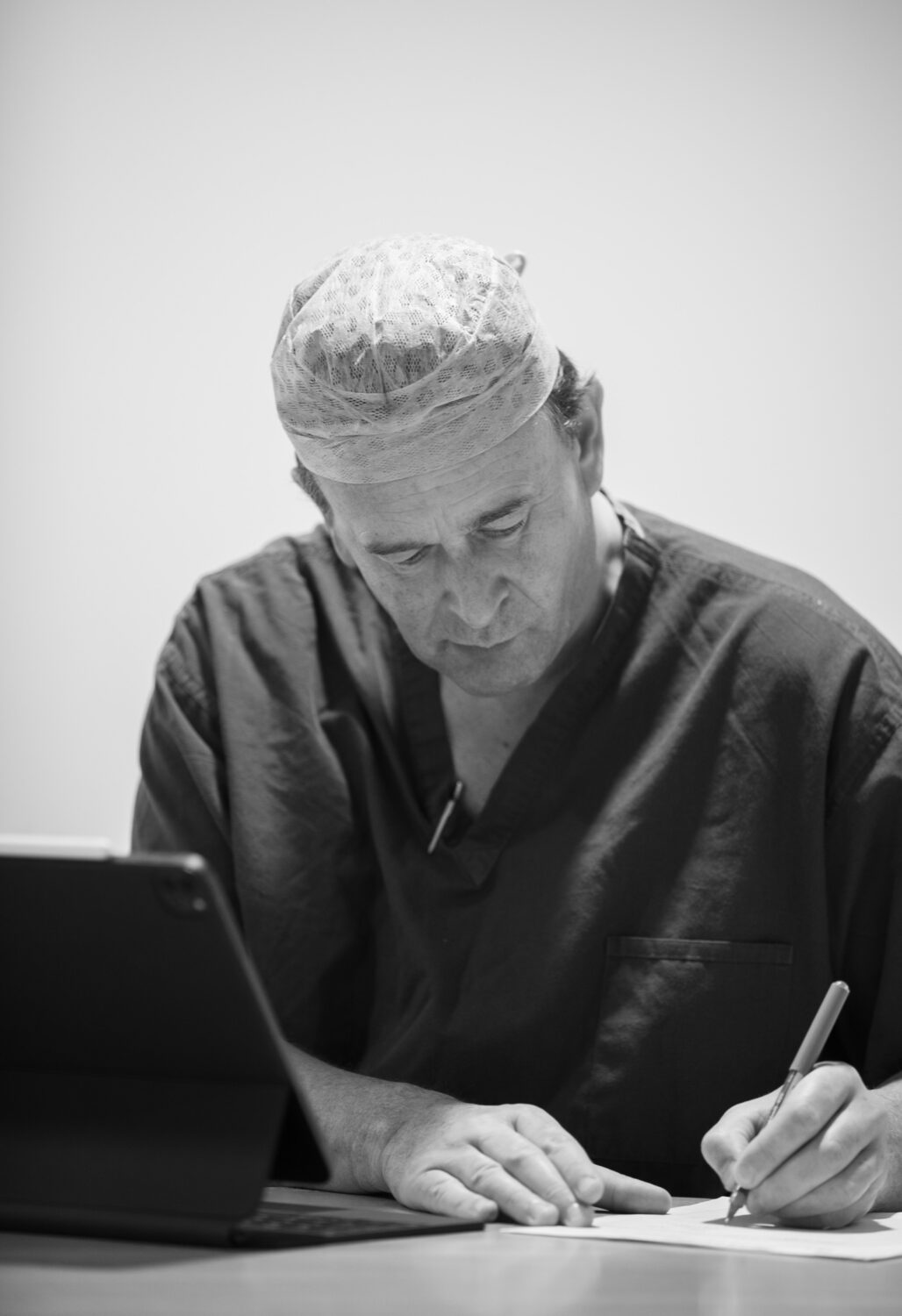
About your Plastic Surgeon: Mr Antony Fitton
MB, BS(hons)., MD., FRCS(eng)., FRCS(plast).
Mr Antony R Fitton qualified at the Royal London Hospital in 1989 with distinction in Surgery. He holds a MB, BS(hons)., MD., FRCS(eng). and FRCS(plast). (Fellowship at the Royal College of Surgeons).
He is a member of BAPRAS (British Association for Plastic, Reconstructive and Aesthetic Surgeons), BAAPS (British Association for Aesthetic Plastic Surgeons), BSSH (British Society for Surgery of the Hand).
Mr Fitton has received the Paton & Masser Award and the CM Matthews Award from the Royal College of Surgeons of England or his research in nerve injury.
Mr Fitton is licensed as Plastic and Reconstructive Surgeon by the GMC.
Life-changing result
"I just wanted to thank you (and your team) for the life-changing result of my top surgery. This will provide me with the freedom that I’m excited to enjoy, including being able to go swimming and actually staying cool in summer! All jokes aside, you have helped to mark a new chapter in my life, for which I am incredibly grateful… ALL the best."
Our appearance has an impact on how others perceive us. We are experts in creating an improved version of you. Click on a procedure below for more information.
Body surgery (or contouring) can involve all or one of the following, with prime focus on areas such as the buttocks, tummy, thighs, arms, and breasts. Click on the links below for more information.
There are several different types of hand surgery but all aim to restore functionality while making the hand look as normal as possible. Click on the links below for more information.
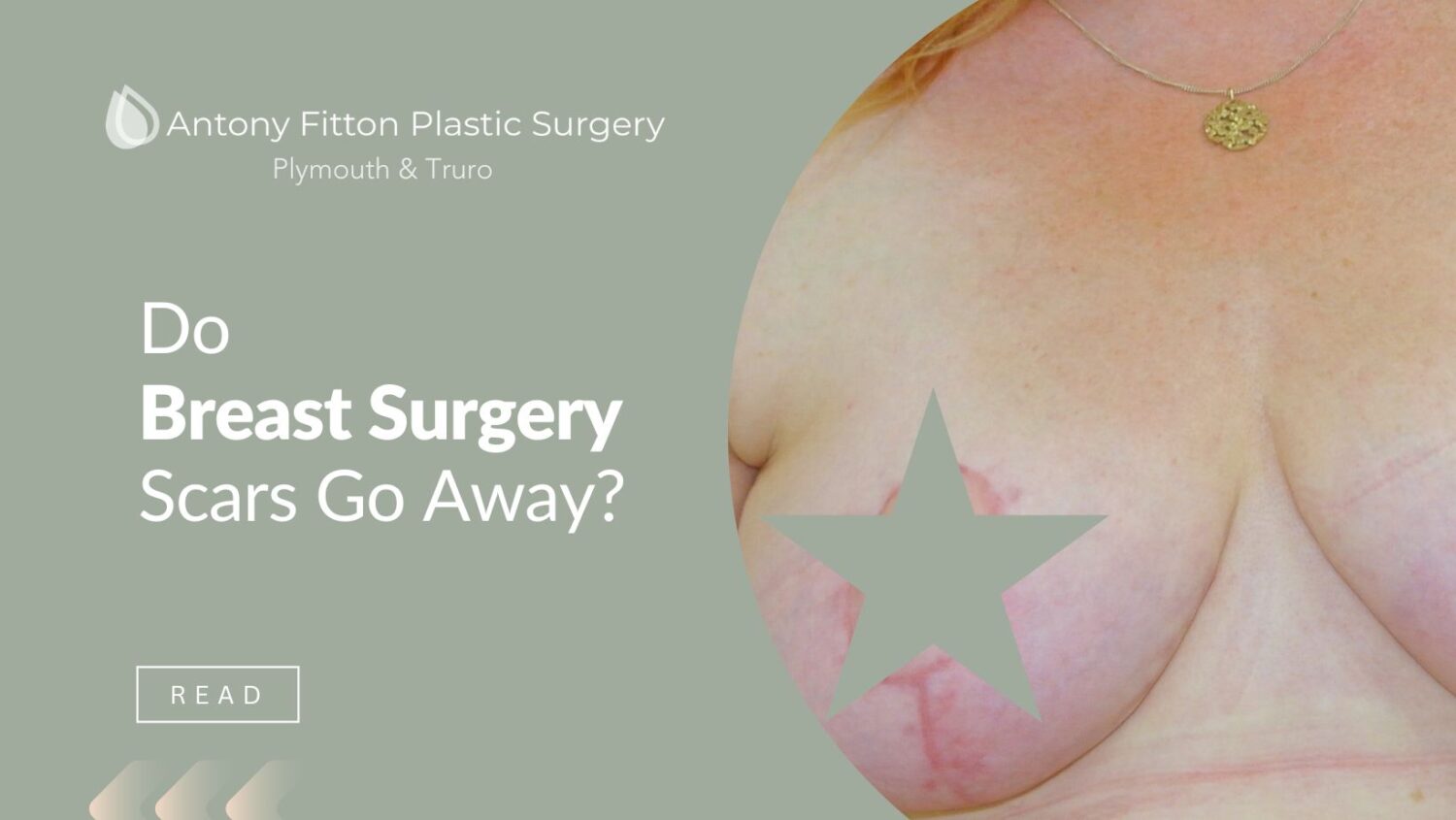
Do Breast Surgery Scars Go Away? Expert Advice from Antony Fitton
Find out how long breast surgery scars last and effective methods to help reduce their appearance wi
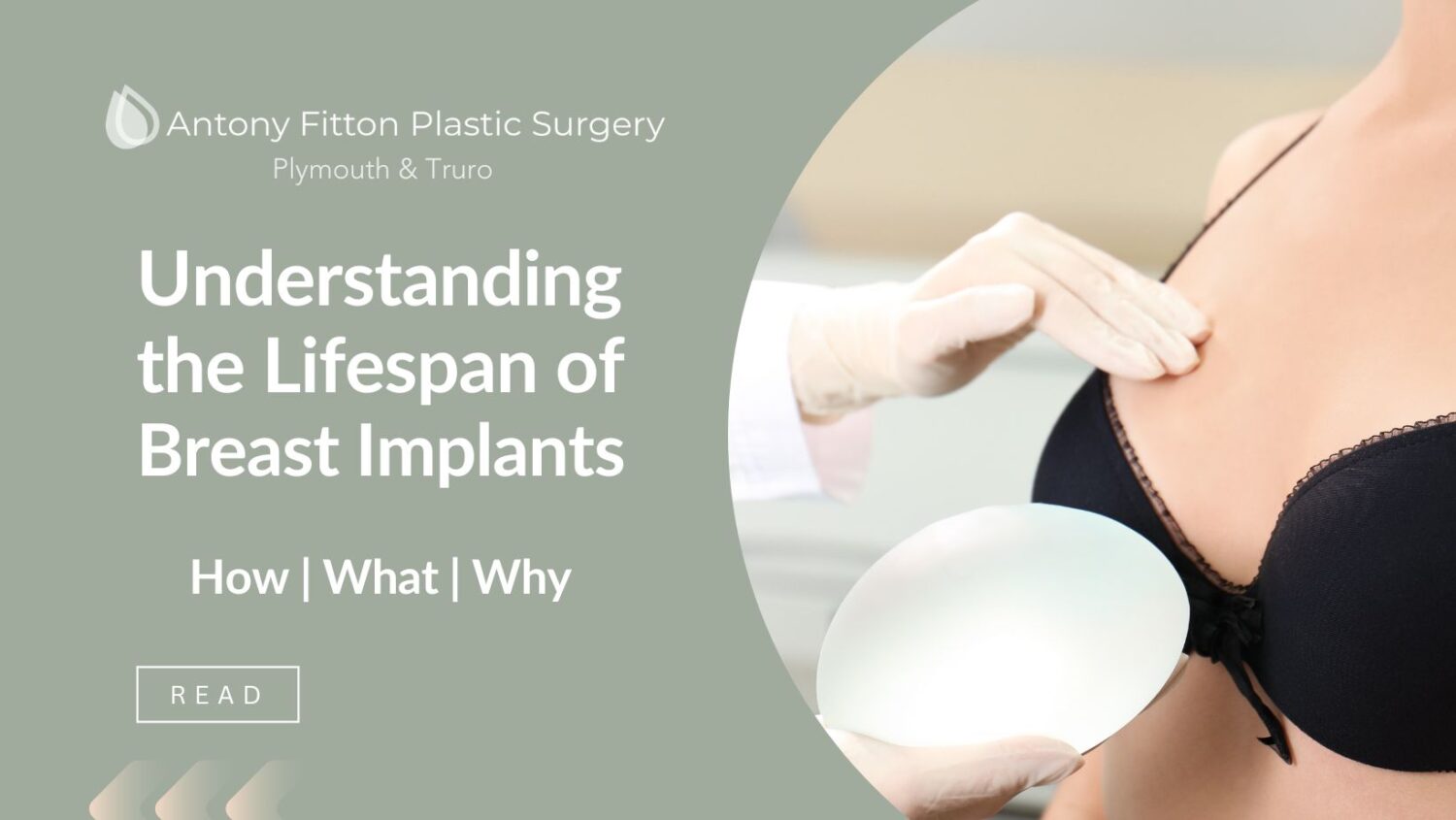
Understanding the Lifespan of Breast Implants: Expert Insights from Antony Fitton
Discover the Lifespan of Breast Implants and what factors impact their longevity with our expert ins
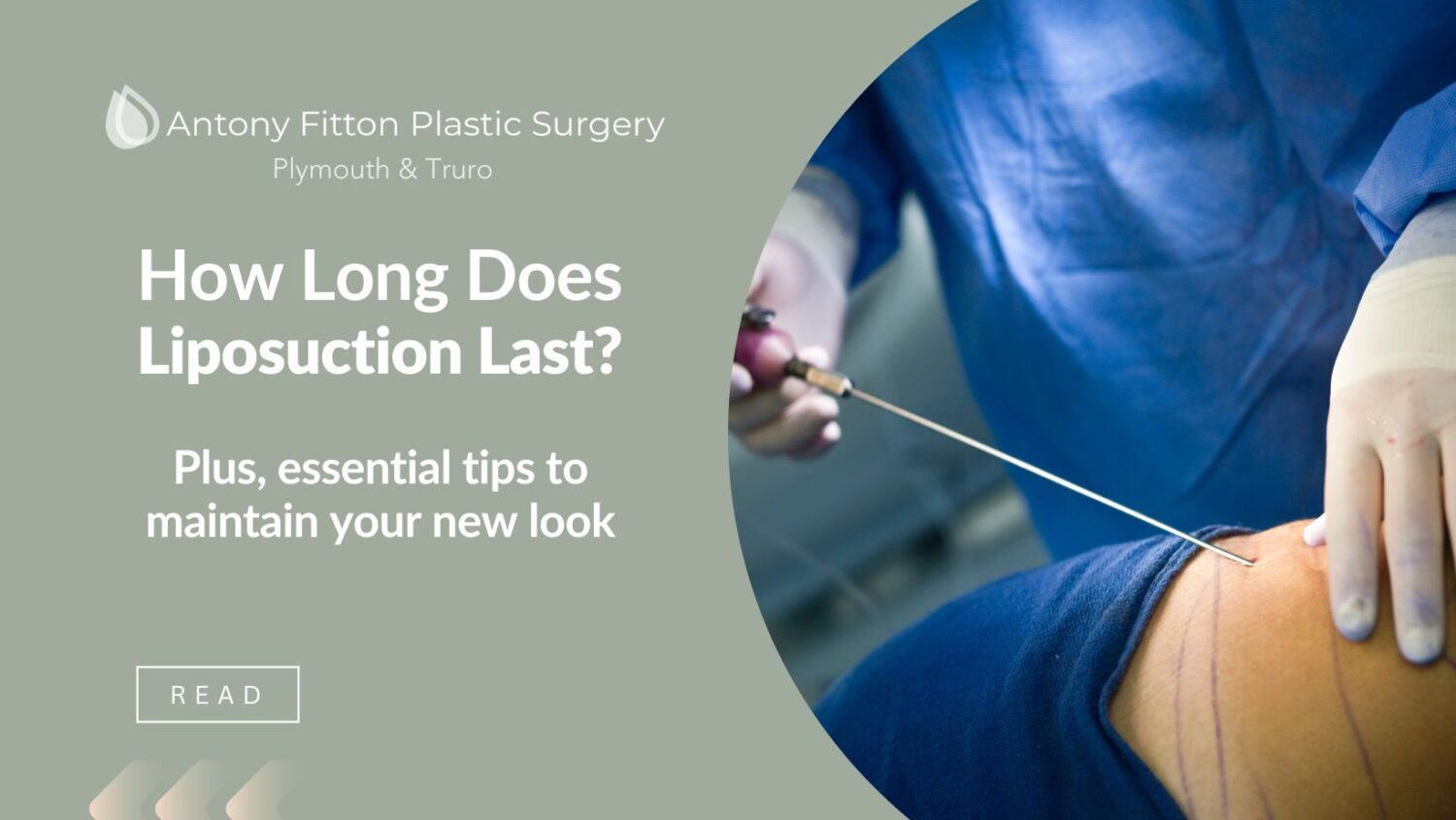
How Long Does Liposuction Last?
Antony Fitton reveals his essential advice on how long liposuction results last and tips to maintain



